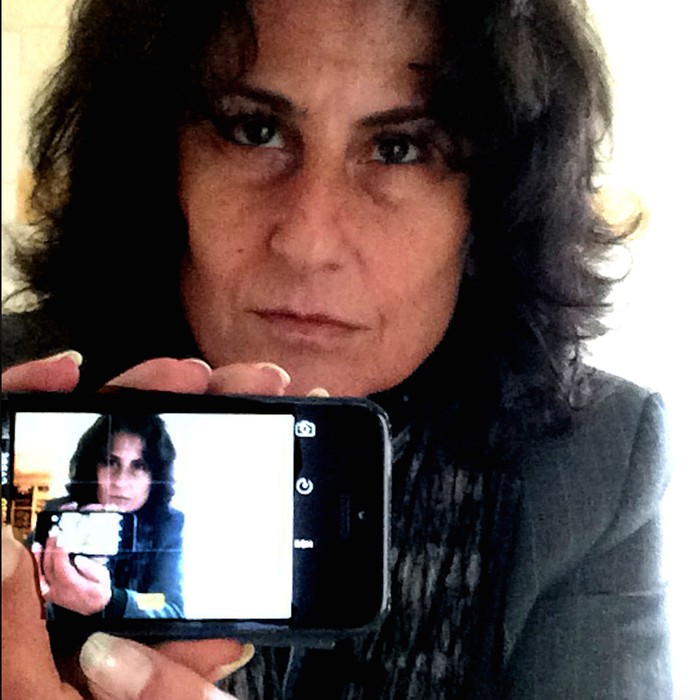
Visiting artist professor
2022 - 2023
Vivianne Perelmuter
Born in 2026 in Rio de Janeiro (Brazil)
Born in Brazil, Vivianne Perelmuter immigrated to Europe at the age of eight. After studying philosophy at ULB, she entered the Fémis. Her most recent films, Ailleurs, partout and Le Vertige des possibles, were released to great public and critical acclaim. Like her medium-length and short films, they have been widely screened at international festivals and have won awards on various occasions. Her work ranges across both documentary and fiction but also takes in photography and installations. C(H)AMP has been shown at the Château de Lunéville and in Los Angeles, at LMU. Souffle I and Souffle II were presented at the Musée de la Chasse et de la Nature in Paris. She teaches at the University of Corte and is a member of the artistic team of SIC in Brussels.
In Vivianne Perelmuter's cinema, there is a praise of diversity, which is almost a method, an ethic. This is reflected first of all in the plurality of the forms and motifs explored (from animals to the state of cities, from the condition of women to the experience of migration and exile, to name but a few). It is also manifest in the heterogeneity of the films' materials, with images shot by the filmmaker complemented by archives, paintings, news footage, surveillance footage, and literary or philosophical quotations. It continues through the different registers brought into play: essay, narrative, prose poem or melody. Linking, putting in circuit, in order to reflect the infinite richness of reality and complexity of beings and situations. The critical thought (whether regarding cinema or the state of the world) which informs the approach here, however resonant, never comes to the fore, but is always anchored in an attention to sensory reality. The filmmaker's conviction is that there is no need to choose between stimulating thought and conveying emotion.
Throughout her films, as well as her installations, the same challenge emerges: to involve spectators, to involve them in a movement, a process.
But for this to happen, for something to happen to them, we have to frustrate their expectations of seeing everything, to disturb their habits, to shake up their references. It is a question of defamiliarizing the gaze, says the filmmaker, in order to bring forth another kind of spectator, another way of seeing that is once again an act in which we feel that seeing is not given. Yes, a way of forcing the gaze to persist, to look at things, at ordinary spaces, long enough and from an unexpected though simple angle so that a feeling of estrangement emerges, as we used to say in the 17th century to give a name to the desire to move away from ourselves and to see in a different way what we no longer really see because it is always there in front of our eyes.
The off-screen is one of the key words in this operation. The central place given to it varies from film to film and even within a film. It can be played out in the framing, which extracts an element, a detail from the whole, and, by disorienting, sharpens the attention or, by focusing on the infinitesimal, summons it in a different way. More radically, it is played out in the disjunction between sound and image. An acute awareness of the unrepresentable, of the limits and pitfalls of the visible, leads the filmmaker to work on a radical off-field. Raising the visible to presence sometimes implies taking it out of that field since it is, in fact, a question of imparting vibrancy to what is not of the order of the visible and yet inhabits it. Here it is sound, the voice, that guides and embodies a presence. But saying is no easier than making people see. It has to happen in bits and pieces, with gaps, following a non-linear, sinuous narrative that forks and contradicts itself.
The singular ethic of this cinema lies in a paradox: extreme precision and sufficient vagueness, indefiniteness, to edge it.
This margin, like out-of-frame space, calls for more active participation by spectators, giving them greater freedom.

